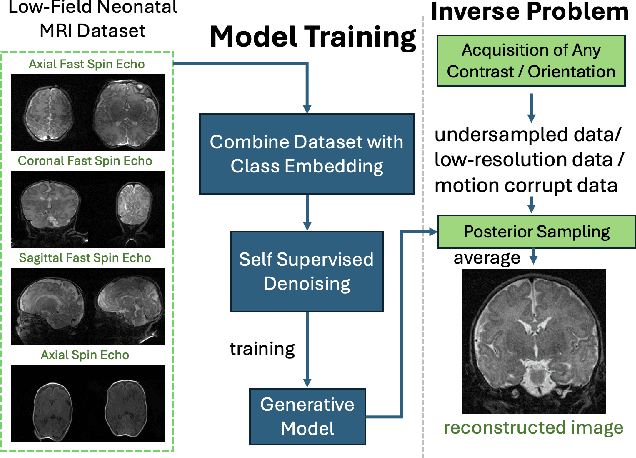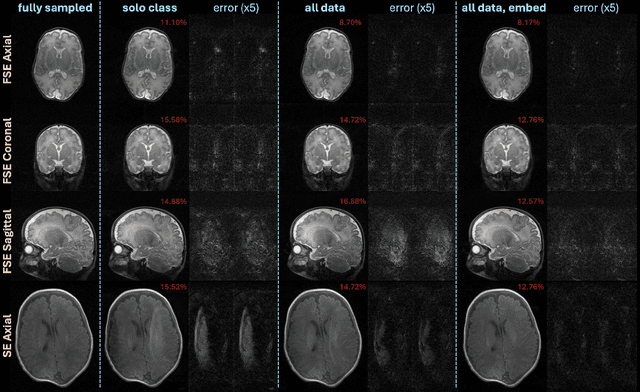Accelerated, Robust Lower-Field Neonatal MRI with Generative Models
Paper and Code
Oct 28, 2024



Neonatal Magnetic Resonance Imaging (MRI) enables non-invasive assessment of potential brain abnormalities during the critical phase of early life development. Recently, interest has developed in lower field (i.e., below 1.5 Tesla) MRI systems that trade-off magnetic field strength for portability and access in the neonatal intensive care unit (NICU). Unfortunately, lower-field neonatal MRI still suffers from long scan times and motion artifacts that can limit its clinical utility for neonates. This work improves motion robustness and accelerates lower field neonatal MRI through diffusion-based generative modeling and signal processing based motion modeling. We first gather a training dataset of clinical neonatal MRI images. Then we train a diffusion-based generative model to learn the statistical distribution of fully-sampled images by applying several signal processing methods to handle the lower signal-to-noise ratio and lower quality of our MRI images. Finally, we present experiments demonstrating the utility of our generative model to improve reconstruction performance across two tasks: accelerated MRI and motion correction.
 Add to Chrome
Add to Chrome Add to Firefox
Add to Firefox Add to Edge
Add to Edge